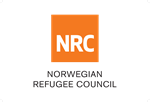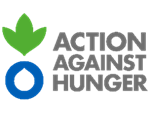
As World Water Day 2022 approaches on 22 March, a group of 13 Iraqi and international civil society organizations call for more action to address the causes and impacts of Iraq’s water crisis.
To highlight the issues and help people tackle them, the undersigned agencies have come together to create Iraqi Water Week – a week of awareness raising, information sharing, and community building activities across Tigris and Euphrates cities spanning from the International Day of Action for Rivers on 14 March to World Water Day on 22 March. “Iraqi Water Week is an opportunity to stop and think about how we use our water. We all have a role to play in protecting this precious resource – from government officials to families in their homes. Water is a shared resource and a shared responsibility”, says head of Iraqi NGO Humat Dijlah (“Tigris Protectors”) Ali Al-Karkhi. The 13 undersigned agencies hope that Iraqi Water Week will inspire regional togetherness on this shared resource too.
Dams in Iraq and neighbouring countries are clotting the natural flow of the Tigris and Euphrates rivers that connect the four countries in the Mesopotamia region, cutting off the lifeblood of thousands of people in downstream Iraq. Without water management and in the absence of transboundary water sharing policies in Iraq and in the region, limited water is overused and not reaching the people who need it the most.
Meanwhile, insufficient waste management systems and water treatment plants leave much of the water available heavily polluted, forcing thousands of people to either spend money on safe water or consume dirty water, with serious health risks. Climate change is the straw now breaking Iraq’s back, with increasingly high temperatures and lower rainfall adding to the heavy burden of water shortages and pollution thousands of people in Iraq already carry.
According to a 2018 Save the Tigris report, over 1.2 million cubic metres of pollutants can be found in the Tigris River in Baghdad alone. Through an Environmental Monitoring Network spanning 17 cities and 13 governorates, Humat Diijlah receive regular updates on pollution levels in Iraq’s rivers. “There’s medical waste, industrial waste, and sewage too. You’ve got sewage pipes pouring directly into the Euphrates in Anbar, for instance. You can wash it off your skin, but not off your insides”, says Al-Karkhi, referring to the health risks faced by people forced to drink contaminated water.
An NRC assessment on the impacts of drought found more than one-third of wheat farmers faced crop failure in 2021. This impacted average monthly income, which dropped below survival rates in six governorates, leaving one in five families without enough food. “Farming communities and daily labourers are telling us they need assistance to supplement falling incomes. Meanwhile, farmers need direct support with drought-tolerant seeds and local water management plants,” stated NRC Country Director James Munn.
New data from IMPACT Initiatives and Action Against Hunger (ACF) found that reduced water in Iraq’s southern marshes – a World Heritage site since 2016 - is forcing many people to leave their heritage and homes behind in search of alternative daily work in nearby towns and cities. “Water stress in Iraq is taking its toll on vulnerable populations, and the whole ecosystem is under threat. Delays in taking corrective measures will lead to irreversible damages - it is now or never,” said ACF Country Director Katie Thomas.
Meanwhile, 2021 data from Save the Children found that drought in Diyala has put more than 1.5 million people relying on river water for drinking, washing, cooking, agriculture and livestock at risk, including around 240,000 people who have returned home after fleeing the Da’esh conflict. “Drought conditions have dried up water sources at the same time as demands for water have increased. It’s a perfect storm, and it threatens thousands of children’s presents and futures”, said Save the Children Country Director Ishtiaq Mannan. Recommendations from the research include the need for more efficient irrigation systems to reduce overuse while protecting shrinking agricultural lands.
Iraq’s worsening water situation has risen up the national and international agenda in the last few months. Recent progress includes the second Baghdad International Water Conference (5-7 March 2022) which saw the signing of a new cooperation agreements between the Government of Iraq Ministry of Water Resources and Ministry of Environment to support a joint approach to tackling the issues. On 2 March the UN also adopted a global treaty to address plastic pollution, presenting an opportunity for Iraq to ratify and domesticate it into national law and practice.
The undersigned agencies ask that these and other relevant agreements and policies are now effectively resourced and put into practice on the ground. This includes the 2009 Law on Protection and Improvement of the Environment (no. 27) and 2001 Law on Conservation of Water Resources (no. 2), which prohibit the dumping of waste and discharge of pollutants in public waters. Civil society stands ready to support government actors and communities to address Iraq’s water management, quality, and climate change challenges.
/ENDS
Undersigned agencies: ACF, CARE, DRC, Humat Dijlah, Mercy Corps, Mission East, NRC, Oxfam, Save the Children, Save the Tigris, Un Ponte Per, Waterkeepers Iraq, World Vision
Media enquiries: For comments, interviews or information, please contact Elizabeth White ([email protected], +964 751 740 3199)



